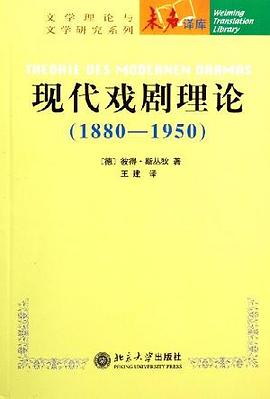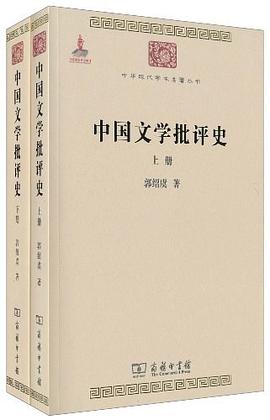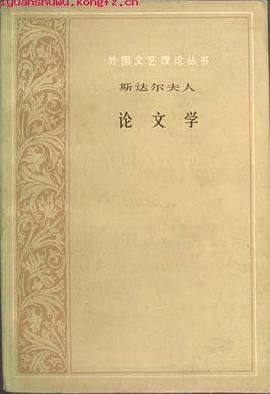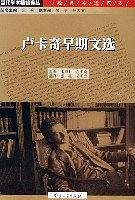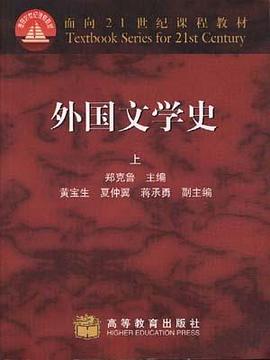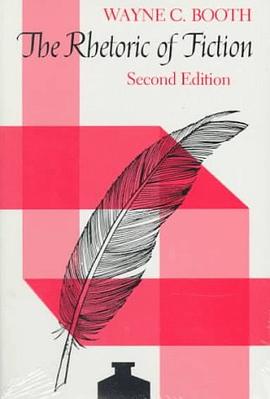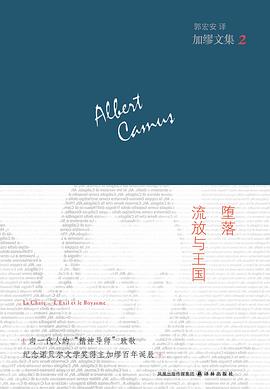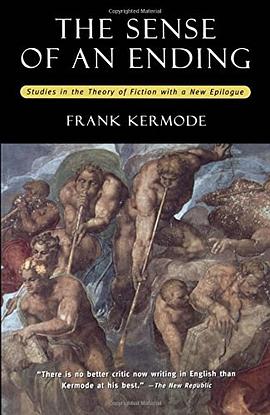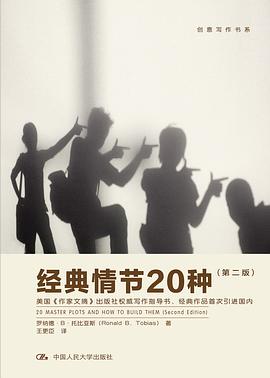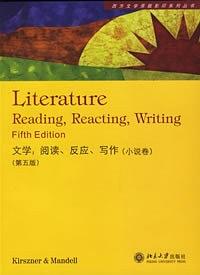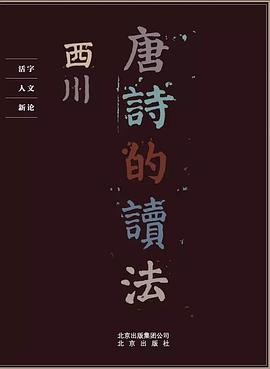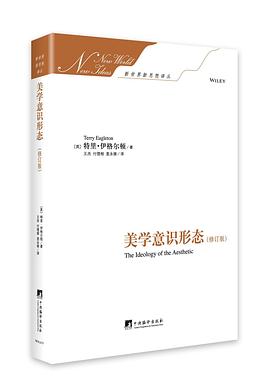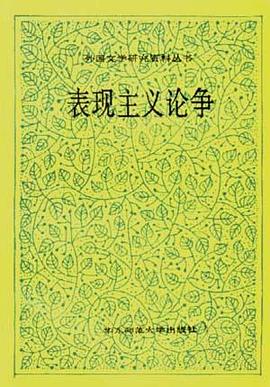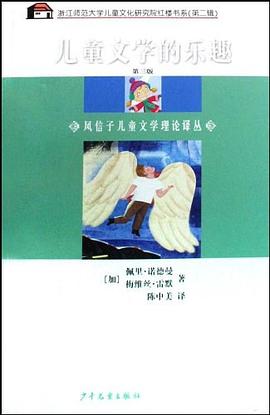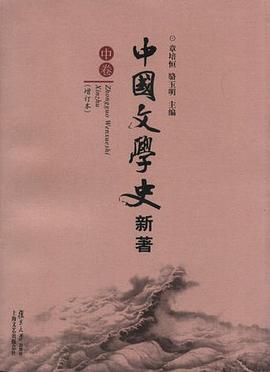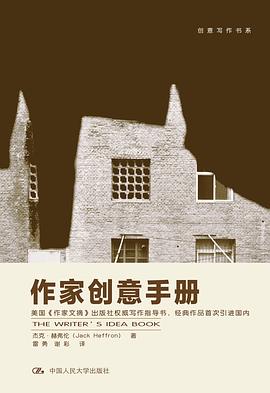
Mimesis pdf epub mobi txt 电子书 下载 2026
- 文学理论
- Auerbach
- 奥尔巴赫
- 比较文学
- literature
- 文艺理论
- 比較文學
- 德国
- 哲学
- 文学
- 模仿
- 美学
- 文化
- 身份
- 表征
- 叙事
- 形式
- 认同

具体描述
A half-century after its translation into English, Erich Auerbach's "Mimesis" still stands as a monumental achievement in literary criticism. A brilliant display of erudition, wit, and wisdom, his exploration of how great European writers from Homer to Virginia Woolf depicted reality has taught generations how to read Western literature. This new expanded edition includes a substantial essay in introduction by Edward Said as well as an essay, never before translated into English, in which Auerbach responds to his critics. A German Jew, Auerbach was forced out of his professorship at the University of Marburg in 1935. He left for Turkey, where he taught at the state university in Istanbul. There, he wrote "Mimesis", publishing it in German after the end of the war. Displaced as he was, Auerbach produced a work of great erudition that contains no footnotes, basing his arguments instead on searching, illuminating readings of key passages from his primary texts. His aim was to show how, from antiquity to the twentieth century, literature progressed toward ever more naturalistic and democratic forms of representation. This essentially optimistic view of European history now appears as a defensive - and impassioned - response to the inhumanity he saw in the Third Reich. Ranging over works in Greek, Latin, Spanish, French, Italian, German, and English, Auerbach used his remarkable skills in philology and comparative literature to refute any narrow form of nationalism or chauvinism, in his own day and ours. For many readers, both inside and outside the academy, "Mimesis" is among the finest works of literary criticism ever written.
作者简介
Erich Auerbach, (born Nov. 9, 1892, Berlin, Ger.—died Oct. 13, 1957, Wallingford, Conn., U.S.), educator and scholar of Romance literatures and languages.
After gaining a doctorate in philology at the University of Greifswald, Germany, in 1921, Auerbach served as librarian for the Prussian State Library. From 1929 until his dismissal by the Nazi Party in 1936, he was ordinarius university professor of Romance philology at the University of Marburg. From 1936 to 1947 Auerbach taught at the Turkish State University in Istanbul, where he wrote his magisterial survey of the linguistic means of depicting reality in European literature, Mimesis: Dargestellte Wirklichkeit in der abendländischen Literatur (1946; Mimesis: The Representation of Reality in Western Literature). He joined the faculty at Yale University in 1947, becoming Sterling professor of Romance philology in 1956. In 1949–50 he was a member of the Institute for Advanced Study at Princeton, N.J.
Although Auerbach wrote a number of important scholarly studies, including Dante als Dichter der irdischen Welt (1929; Dante, Poet of the Secular World) and Literatursprache und Publikum in der lateinischen Spätantike und im Mittelalter (1958; Literary Language and Its Public in Late Latin Antiquity and in the Middle Ages), his foremost work of literary criticism was Mimesis. This book not only offered philological and historical examinations of individual literary works, from the Hebrew Bible and Homer to Virginia Woolf and Marcel Proust, but also established an influential critical method, offering a history of culture through the close analyses of literary styles.
目录信息
读后感
埃里希•奥尔巴赫《模仿》导论 萨义德 朱生坚 译 前言 既然这一章是这个关于人文主义的一系列思考中的一部分,我觉得应该解释一下,为什么它只是关于一个作者、一部作品,而确切地说,这个作者恰恰又不是美国人。我想,如果我能通过审视一部作品——它对我具有终身的重要性,...
评分笨重朴实的文本分析的典范,没想到自己能啃完。 古典的文体分用原则和犹太基督教的文体混用原则,德国式思辨气息浓厚的正反题。但奥尔巴赫对文体的选取绝不是像他自己说的那样信手拈来。 迄今最好的西方文学史。欧洲文学的最高峰在19世纪现实主义,拉丁文学中心主义者,司汤达...
评分奥尔巴赫的思路被称为文化历史研究方法,但其实在他的这本书中,不仅对作者和作品产生的背景进行了历史文化的分析,还对作品的语言、风格和思想进行了历史文化的分析。 他将文体分为上等、中等和低俗,然后分别对应古典时代的描写上等人的悲剧、后来的中等人的浪漫剧,以及后来...
评分《摹仿论》并不是一部典型的现实主义文学史类的书籍,正如它的副标题所言它是关于“西方文学中现实的再现”问题的描述。换言之,是讨论了“现实”是怎样进入文本的这一问题。 奥尔巴赫全书的线索围绕着“文体流变”这一关键词,他认为有两种文体传统。一种是“古典主义的文体分...
评分奥尔巴赫《摹仿论》第十三章讲到了莎士比亚戏剧,这是非常精彩的一章,除了继续在莎翁的戏文中阐述此前提出的“文体混用”原则外,他还进一步从“混用”中辨析出了一种近现代产生的创作美学:多余——它的同义词是文本中那些“没用的”、“无关紧要的”、“删掉也可以的”叙事...
用户评价
老实说,初读时我对这本书抱持着一丝审慎的态度,毕竟文学殿堂里佳作太多,很容易被新事物的光环所迷惑。然而,随着阅读的深入,我开始意识到这本书的内在力量是多么强大。它探讨的主题宏大而深远,涉及存在主义的经典命题,但作者却用极其贴近个体经验的叙事方式来呈现,避免了空泛的说教。书中对“镜像”和“复制”概念的探讨,简直是神来之笔,它让原本抽象的哲学思辨变得可以触摸、可以感知。最让我印象深刻的是作者构建的那个亦真亦幻的世界观,你永远无法完全确定哪一部分是真实,哪一部分是虚构的映射。这种游走在边缘的叙事,极大地拓宽了我的阅读视野。它不像那些一目了然的作品,需要读者付出思考的努力,但一旦你投入其中,回报是丰厚的。这本书更像是为你准备的一把精巧的钥匙,去开启你认知世界的新大门。
评分这本书的结构设计简直是一场精妙的迷宫,每当我以为我找到了出口,作者又巧妙地将我引向了新的岔路口。这种非线性的叙事手法,非但没有造成阅读障碍,反而增强了作品的神秘感和张力。我特别喜欢作者对人物内心独白的运用,那些片段式的、跳跃性的思维流,完美地模拟了人类在焦虑状态下的意识活动。读起来颇有挑战性,需要读者保持高度的专注力,甚至需要时不时地回头重读几段,才能将散落的线索串联起来。这种“主动参与”的阅读体验,远比被动接受信息来得过瘾。此外,书中对于“模仿”行为的剖析,简直是教科书级别的。它不仅仅停留在表层的行为模仿,而是深入到了模仿如何塑造自我身份,甚至侵蚀原本自我的核心层面。对我而言,这本书提供的不仅仅是一个故事,更是一个深入分析现代社会复杂性的思想工具箱。
评分这本书的封面设计简直是视觉上的享受,那种深沉的色调和精准的排版,立刻就让人感受到一种智性的重量。我记得我是在一个周末的下午,阳光正好洒在我的书桌上,翻开了第一页。那种细腻的文字触感,仿佛能穿透纸面,直抵读者的内心。它讲述了一个关于身份认同的迷失与重建的过程,主角的内心挣扎被刻画得入木三分。作者对细节的捕捉能力令人惊叹,无论是对城市日常景象的描绘,还是对人物微妙表情的刻画,都显得那么真实可信。阅读过程中,我时常会停下来,深思片刻,思考自己与周围世界的联系。这本书并不是那种追求情节跌宕起伏的快餐读物,它更像是一次对灵魂深处的探索,每一次翻页都是一次与自我的对话。我尤其欣赏作者在处理复杂情感时的那种克制与力度,没有过度的煽情,却能引发读者最深沉的共鸣。读完后,我感觉自己像是经历了一场漫长的旅途,虽然疲惫,但收获了许多前所未有的感悟。这本书的价值,在于它能促使我们重新审视那些我们习以为常的生活图景。
评分我得说,这本书的叙事节奏把握得相当老道,不像有些文学作品那样故作高深,拖沓冗长。它开篇就迅速将我拉入了一个充满张力的情境中,那种无形的压力和主角面临的选择困境,让我几乎放不下书。作者的语言风格非常独特,夹杂着一种近乎诗意的冷峻,精准地切开了人性的幽暗角落。比如,书中有一段描写主角在雨夜中漫步的场景,那段文字的画面感极强,我仿佛能听到雨滴敲打在伞面上的声音,感受到空气中弥漫的潮湿气息。这种沉浸式的体验,是很多作品难以企及的。而且,作者对于历史背景的引用和融合处理得非常巧妙,它不是生硬地堆砌知识点,而是自然地成为了推动情节发展的内在动力。我常常在想,如果我处于主角的位置,我会如何抉择?这种代入感,恰恰说明了作品的成功之处。它挑战了我们对“真实”的传统认知,让我们开始质疑自己所见所闻的可靠性。
评分这本书的书写,透着一股老派欧洲知识分子的严谨与优雅,但它的内核却是全然现代的、充满尖锐性的。作者的遣词造句极具雕塑感,每一个词汇的选用都仿佛经过了千锤百炼,掷地有声。我特别赞赏它对于“观看”与“被观看”这一对永恒主题的处理。书中描绘的那些角色,他们活在被审视的目光之下,他们的行动、他们的语言,都成为了某种表演的一部分。这种疏离感和自我审视的痛苦,被描绘得既残酷又充满诗意。它迫使我反思,在信息爆炸的今天,我们有多少行为是出于本心,又有多少是迎合某种期待的“表演”?这本书的阅读过程,与其说是体验一个故事,不如说是一次对文化现象的深层解剖。它不提供简单的答案,而是提出更深刻、更难以回避的问题,让人在合上书本之后,依然久久不能平静。
评分理论书都读到流泪,他就是奥德赛
评分英文翻译就好多了
评分Homer, Dante and Shakespeare.真是太神了,用一个motif统摄各种批评方法,简直就是批评的百科全书…
评分怀旧之书。
评分大概只有我完全不喜欢这本书吧……
相关图书
本站所有内容均为互联网搜索引擎提供的公开搜索信息,本站不存储任何数据与内容,任何内容与数据均与本站无关,如有需要请联系相关搜索引擎包括但不限于百度,google,bing,sogou 等
© 2026 book.quotespace.org All Rights Reserved. 小美书屋 版权所有


